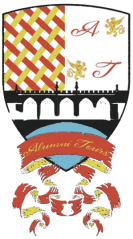Visitor Guide to Historic Cambridge University
University The university was founded in 1209, and is made up of over 100 departments (such as Mathematics, Physics, English and so on), as well as 31 affiliated but independent colleges. It doesn’t have any campus (other than those of the colleges), which leads many tourists and students alike to almost forget its existence. Students…
Religious Buildings in Cambridge
Religious buildings Cambridge has three churches dating back nearly 1000 years – at this age it is hard to know precisely the dates, but generally agreed to be the oldest is St Bene’t’s Church, sometimes described as the city’s oldest building in continual use. The Saxon tower of this Franciscan church was built around 1025…
Top Attractions Outside The City of Cambridge
Outside the city There are a number of worthwhile places to visit outside the city. Anglesey Abbey: A glorious National Trust country house, which was founded as a hospital in 1135 and soon expanded into an Augustinian priory until the dissolution of the monasteries in 1536. The priory ruins were incorporated into a house about a century later, which was then extended and converted into a gentleman’s home by Lord Fairhaven in the early 20th century, maintaining the monasterial character in the lower rooms. There is a long library, with an unfinished Constable painting of the embarkation of George IV’s royal barge, an interesting Congreve clock, and some characteristic moonlight scenes by the Pether family. The extensive grounds provide good walks all year round, with special openings in snowdrop season, then summer roses, autumn dahlias and a popular Winter Lights…
Science Hotspots in Cambridge City
Science hotspots During the Great Plague of 1665, when a third of Europe died, many academics were sent home. Isaac Newton returned from Trinity College to his family home Woolsthorpe Manor, where the story goes that gazing at an apple tree in the garden, he was inspired to discover the theory of gravitation. He lived…
Popular Outdoors & Open Spaces
Outdoors & Open Spaces Cambridge is famous for its open spaces, aside from the many college lawns and gardens, which help to make it a very attractive and healthy place to live. Cows are a common sight in summer on areas of ‘common’ land even quite close to the centre, as local farmers still take…
Visit the Best Museums in Cambridge
Museums There are eight free University of Cambridge Museums, as well as four independent museums. Fitzwilliam Museum (Trumpington Street): Cambridge’s most famous museum, started in 1816 when Richard Fitzwilliam, 7th Viscount Fitzwilliam of Merrion bequeathed his art and library to the university. Now welcoming some 400,000 visitors each year, it has a fabulous collection of…
The Best Guide to Literary Cambridge
Literary Cambridge Every Cambridge undergraduate at some point (possibly in the rain just to prove it can be done) takes out their college punt and attempts to pole themselves along the river, possibly getting marooned in the deep water around St John’s College. At the Mill they haul the punt over the rollers to reach…
Getting Around in Cambridge City
Getting Around One of the things that makes Cambridge such a great place is that in spite of the fact there is tons of stuff going on, it is actually a very small city, and you can fairly easily walk anywhere. If you come from some glorious mountain region then you are likely to be…
Popular Activities in Cambridge City
Activities Cambridge combines all the best features of a small city with a thriving centre where lots of things are going on, many of them free. There are numerous choirs, many university talks and public activities (such as star-gazing at the regular Institute of Astronomy evenings) and so on. Many university clubs are open to…
Why Festivals and Events are So Popular in Cambridge?
Festivals and events The highlights for students are the May Balls, which take place after exams have finished in May Week (which is in June – well what else would you expect!). These are lavish black-tie (or even white-tie) affairs that can cost more than £500 for a couple, and will typically involve bands, fireworks,…
